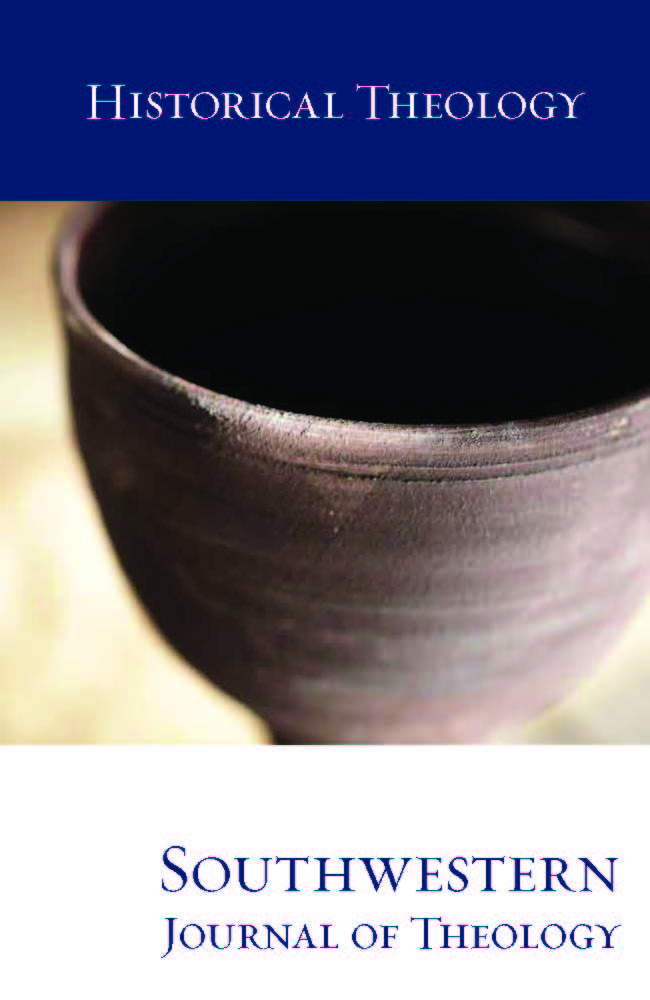
Historical Theology
Southwestern Journal of Theology
Volume 57, No. 2 – Spring 2015
Managing Editor: Terry L. Wilder
By Denny Burk. Wheaton: Crossway, 2013. 262 pages. Paperback, $17.99.
The culture is engulfed with the talk of sex and sexuality. Even within Christian circles, many books and sermons have taken on the topic of sex to encourage believers to move beyond the taboo and embrace a more holistic perspective on this very personal topic. Unfortunately, there have been some Christian resources in recent years that have sounded more like the culture and less like the Bible when it comes to sex. Thankfully, Denny Burk’s contribution in What Is the Meaning of Sex? is a welcome relief that brings the focus back to Scripture.
Answering the question of the title is the primary task of the book. Burk does not set out to write a comprehensive guide to all issues related to sex. Instead, he wants to point out what God designed sex to be. In answering his own question, Burk writes, “The short answer is this: sex exists for the glory of God. Consequently, all sexual morality must be measured by the ability to achieve that purpose” (12).
This work makes no apologies for driving its readers back to the text of Scripture in order to make sense of the meaning of sex. Burk starts with a helpful look at 1 Corinthians 6 and its implications for the Christian understanding of sex and the body. As a follow-up to that chapter, Burk also spends a chapter dealing with hermeneutics. In an otherwise very accessible work, this chapter could have the tendency to bog down readers who are not aware of the intricacies of hermeneutical method. Burk attempts to make the discussion easier to understand, but the non-specialist may find it confusing.
Burk then moves to discussions more familiar to those interested in the topic. He addresses matters of marriage, conjugal union, family planning, gender, sexuality, and singleness in the remaining chapters of the book. Within each of these chapters, he picks up significant cultural issues and shows his readers how the Bible addresses them. For example, in the chapter on marriage, Burk provides seven descriptors of marriage (covenantal, sexual, procreative, heterosexual, monogamous, nonincestuous, and symbolic) that directly address some of the concerns regarding same-sex marriage and polygamy. As the culture moves in the direction of affirming these alternative relationships, Burk’s work is helpful in countering those arguments.
The two most interesting chapters are those addressing gender and sexuality. The chapter on gender finds its genesis in an encounter Burk first references in the introduction. While speaking at a conference on sexuality, the author received a question about people born with intersex conditions. This drove him to consider whether such conditions undermine the classical understanding of gender as male and female and complementarianism. After considering a number of different conditions and noting the development of the medical community’s responses to these conditions, Burk concludes, “Scripture defines what’s normative for us, not any anomaly that we find in fallen creation. The phenomenon of intersex should call forth our compassion and our love for our neighbors who carry in their persons a painful reminder of the groaning creation. It should not call forth from us a revision of the binary ideal of Scripture. That binary ideal is the matrix from which a binary ideal of gender roles emerges as well” (180-81).
Burk’s chapter on sexuality is also a helpful resource for dealing with challenges related to homosexuality. In this chapter, he focuses on the New Testament texts, especially Romans 1:26-27, and engages those who have veered from the traditional view that homosexuality is sinful. In a world that is swiftly moving toward the acceptance of homosexuality, this chapter is another useful guide on how to engage the church and culture.
Readers will benefit from Burk’s careful treatment of the subject of sex. One need not be a trained theologian or ethicist to glean useful insights from the book. As a result, Christians can approach What Is the Meaning of Sex? with an assurance that Burk will lead them to the text of Scripture to find out what God wants them to know about sex.





